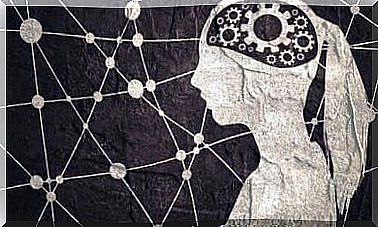Actor-observer Bias In Social Psychology

The actor-observer bias is a type of attribution bias. It is a concept of social psychology that refers to the tendency to attribute one’s behavior to external motivations (“I was wrong because the problem was very difficult”); and at the same time to attribute the behavior of others to internal factors or causes (“Anna was wrong because she is not intelligent”).
The actor-observer bias plays a vital role in how we perceive and interact with others. Basically, we tend to make different attributions depending on whether we are actors or observers in a given situation.
The actor-observer bias
When a person judges their behavior and is the actor, they will most likely attribute their actions and results – particularly negative ones – to situational circumstances (e.g. bad weather) or temporary personal peculiarities (e.g. fatigue), rather than to internal and relatively stable variables such as personality.
If, on the other hand, it is the observer who explains the behavior of another person (ie the actor), in most cases he will attribute the behavior to the general disposition of the actors rather than to factors related to the specific situation.

The actor-observer bias tends to be more pronounced in situations where the results are negative : in a sense, by blaming situations or circumstances for what happened we preserve our self-concept. However, when an unpleasant situation happens to another person, we tend to blame the person for their choices, behaviors and actions, and not so much on external circumstances.
In this sense, the researchers found that we generally do not fall into the actor-observer bias when the figures involved are loved ones, such as close friends and family. How can this be explained?
Apparently, by knowing better the needs, motivations and thoughts of the people we care about, we take greater account of the external forces that influence their behavior.
One possible reason for the actor-observer bias is that when we are the actors in a situation, we are more aware of the circumstances. But when we do an attribution in which the actor is someone else, we often ignore much of those circumstances. There remains the memory of someone associated with stable characteristics.
Actor-observer bias and fundamental attribution error
Often the actor-observer bias is confused with the fundamental attribution error. However, while both cases are attribution bias, they are different from each other. The actor-observer bias and the fundamental attribution error are essentially two sides of the same coin. Both terms refer to the same aspect of attribution bias, but they don’t have the same meaning.
Unlike the actor-observer bias, the fundamental attribution error does not account for our behavior. Often, in fact, it is limited to the internal causes of the behavior of others.
Our tendency to judge the behavior of others based on internal factors, such as personality or disposition, is explained in the fundamental attribution error. The latter, therefore, focuses only on the behavior of others. It is strictly about attributions for the behavior of others.
It can therefore be said that the fundamental attribution error is an attribution bias that calls into question our tendency to explain the behaviors of others on the basis of their internal dispositions; the actor-observer bias, on the other hand, compares the way we make attributions when we occupy one or the other role (actors or observers).

Implications
The actor-observer bias can be problematic, as it can lead to misunderstandings and arguments. This is because, by adopting different points of view – that of the observer and that of the actor – the two may not agree on what happened.
It is logical to think, in fact, that an agreement cannot be reached if both parties attribute individual behaviors to external situations (external attribution) and the situation of the counterpart to its individual characteristics (internal attribution).
Taking a step back and trying to understand the circumstances that led Anna not to solve the problem or Giovanni to lie can save us from unpleasant discussions, as well as get us out of the error and give us a more correct perspective of things. If we do it with ourselves, why shouldn’t we try it with others too?









